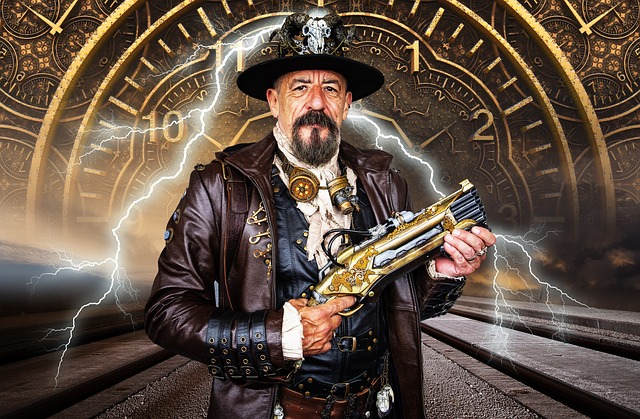The real kicker? This isn’t just the stuff of movies and novels. Scientists have been scratching their heads over it. Take Einstein’s theory of relativity, for instance. It proposes that time isn’t a rigid line but a flexible fabric that warps and bends with speed and gravity. Pretty mind-blowing, right? If you hop in a rocket and shoot off at nearly the speed of light, you could, in theory, experience time differently than folks chilling back on Earth—talk about a cosmic time-warp!
But here’s the rub: while we’ve got the theories, actual time travel remains in the realm of speculation. There are paradoxes to untangle, like the infamous grandfather paradox—what happens if you go back in time and accidentally stop your grandparents from meeting? Would you still exist, or just poof out of reality?
And then there’s the matter of practicality. Building a time machine sounds like a mad scientist’s dream, yet technology seems to lag behind our wildest aspirations. So, while time travel stimulates our imagination and fuels countless plots, the big question remains unanswered: is it merely a fantasy, or are we on the brink of unlocking the door to the fourth dimension?
Theories in Physics About Time Travel
Now, let’s chat about wormholes. These mind-bending shortcuts connect two distant points in space and time, like rolling up a piece of paper so that two dots touch. It’s a tempting idea, right? Just imagine slinking through a wormhole and popping out in a different era, all without worrying about flight delays or baggage claims. Sounds fascinating, but scientists still scratch their heads over whether these portals really exist.

Then there’s the paradox of time travel. Have you ever thought about what would happen if you met your younger self? The “grandfather paradox” dives into this quirky territory—if you went back in time and accidentally stopped your grandfather from meeting your grandmother, would you still be born? It feels like a tangled web of “what ifs” that can keep you up at night!
Even quantum physics adds its spice to the mix. Have you heard of the many-worlds interpretation? It suggests every time you make a choice, a new universe splits off, offering endless versions of reality. So, if you decide to grab a slice of pizza today, there’s a universe where you opted for sushi instead. Pretty wild, right? All these theories can feel overwhelming, but they fuel our curiosity and remind us just how mysterious time really is.
Popular Depictions in Science Fiction
Take “Star Trek,” for example. It’s not just a cool spaceship flying through the cosmos; it’s a vision of unity amidst diversity. The show introduced us to the idea of communicators and touchscreen interfaces long before they became part of our everyday lives. It’s as if the creators reached into the future and brought back hints of what technology could become. Who hasn’t wished for a holographic display to spice up a boring presentation?
Then there’s “Blade Runner,” painting a gritty, neon-lit world filled with replicants and moral quandaries. Here, we’re pushed to ask ourselves, what truly makes us human? The ethical questions raised in such stories often linger in our minds, pushing us to think about the very essence of consciousness.
And let’s not overlook the iconic image of robots, which often serve as both companions and threats in various narratives. Through films like “Ex Machina,” we ponder whether creating life means we also assume responsibility for it. Isn’t it fascinating how these tales resonate deeply within us?
In a nutshell, science fiction is more than just entertainment; it’s a creative lens through which we can examine our hopes, fears, and ethical dilemmas. It takes us on a rollercoaster of emotions while prompting us to think critically about the world we’re building. Isn’t that what makes it irresistible?























Add comment